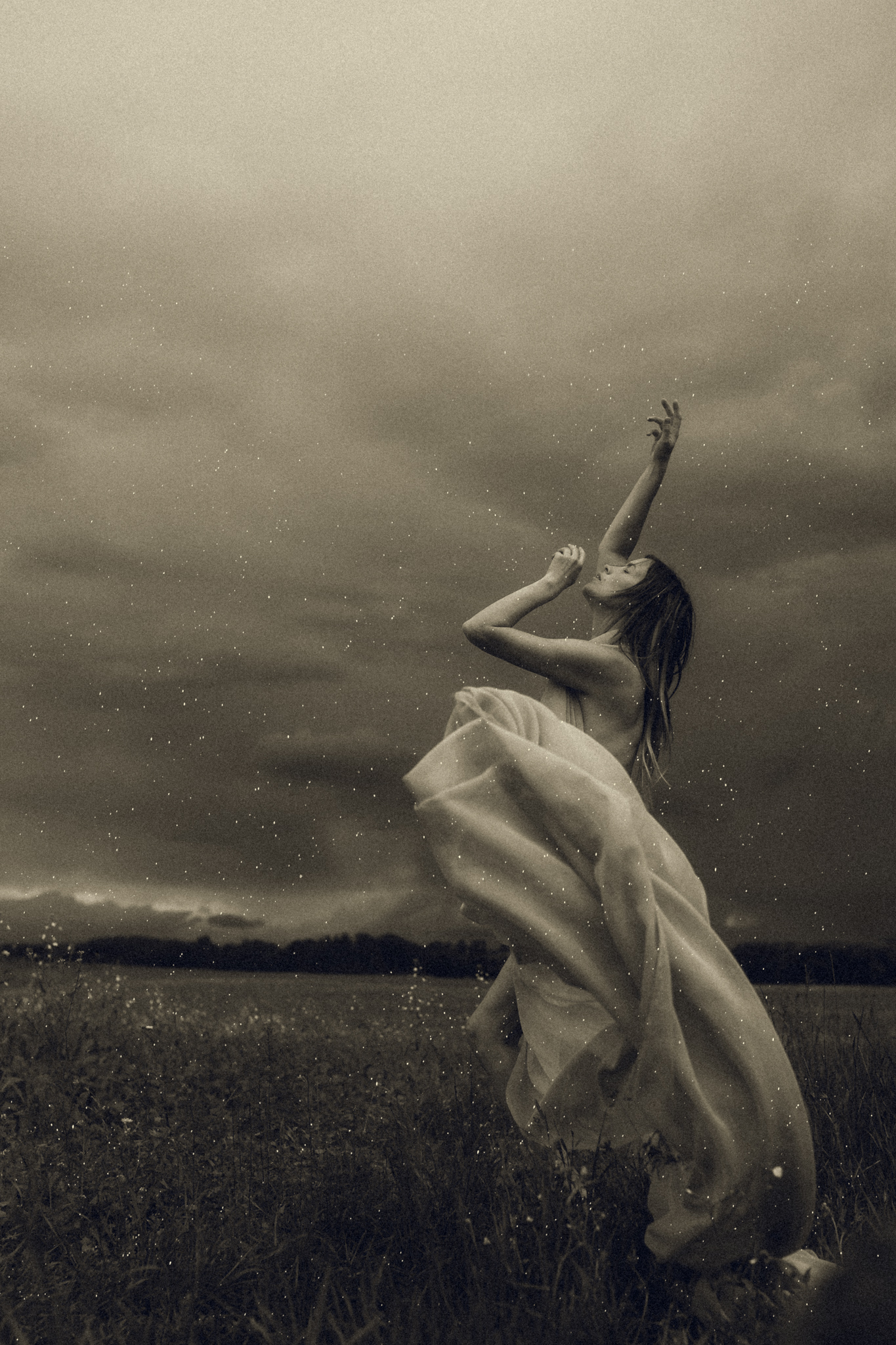The quiet was so loud you wished anything would happen The songs I listened to were the clucking of chickens, the wind in the trees, and my mom’s voice with her guitar after I’d gone to bed at night. I wish I remembered what it was like to be content. Maybe I never was. Maybe I never will be.
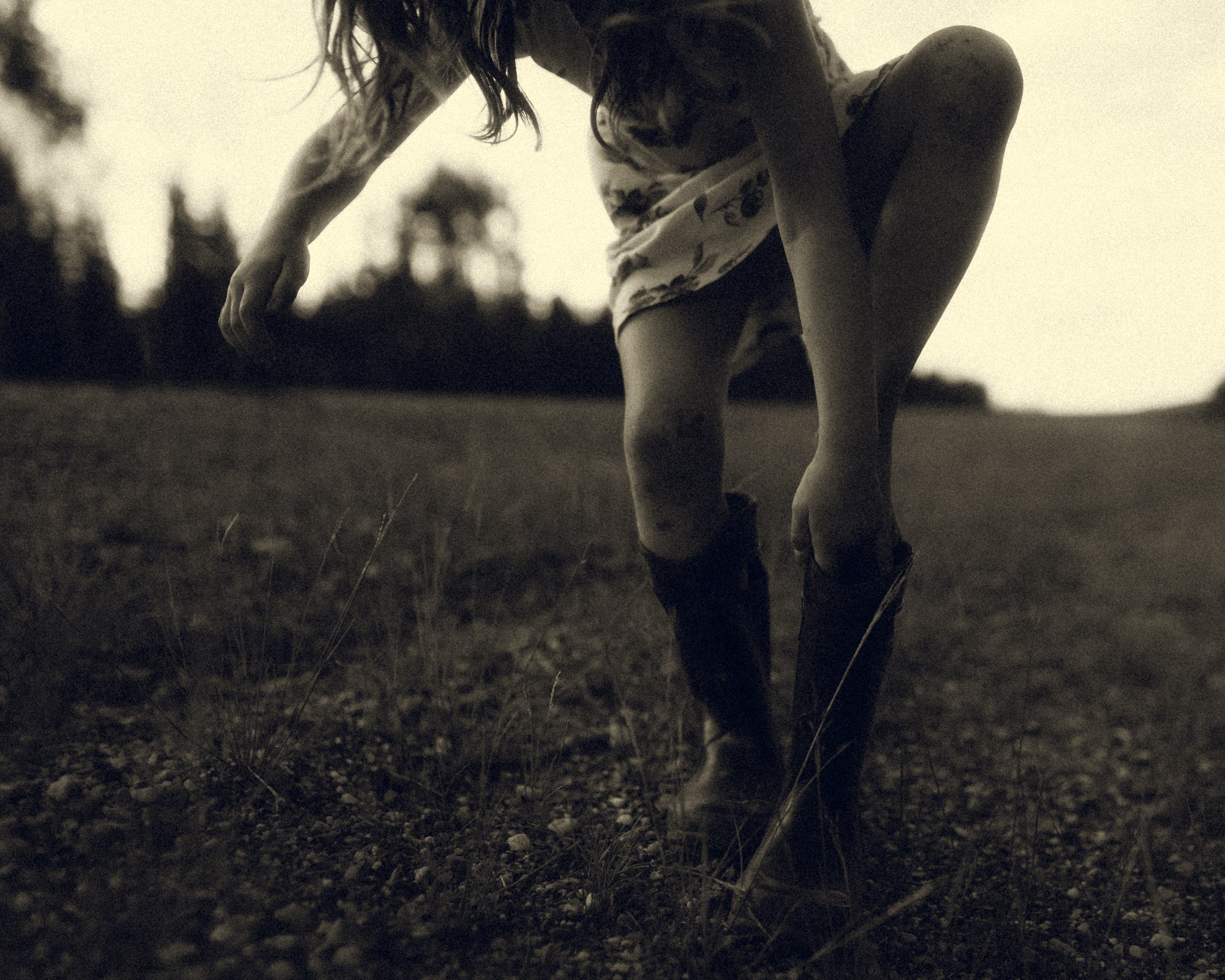
The land and I have been intimately acquainted. I remember sleeping on hay bales under a starlit sky. I remember running barefoot on a riverbank, my clumsy toddler hands trying to catch little toads. I learned about the earth’s magic but I never really got to know the land. I was too busy fighting. I spent so much time fighting to get away, fighting to separate myself from the dirt I felt was my identifier as a poor person. Sometimes people tell me that they grew up poor too and I have a hard time keeping a straight face when they tell me they had an unfinished basement or that they weren’t allowed to watch TV. I smile and nod because I don’t want to discount anyone else’s hardships but I’m not sure how to explain that if they had a working toilet they were not my kind of poor. I understand that they are probably just trying to relate, but saying you understand someone’s experience when you really don’t is just insulting. If you can’t relate, just be empathic.
How do I explain the feeling of sitting on a 5-gallon bucket to pee in the middle of the night, the harsh edge cutting into my small legs? That I was more worried about knocking that pail over at 3 am than I was about the discomfort, or having to go outside and use the outhouse. I hated outhouses. I hate them to this day. I would rather squat on the ground and deal with plants scratching my ass than step inside one of those shit boxes. It isn’t just the smell, it’s also that awful feeling you get hovering your privates over a dark hole. Logically I know it’s likely only piss and shit and bugs down there, but I could never stop my imagination from dreaming up something worse (a problem that has not subsided in adulthood). How can I describe the feeling of waking up in the morning in the dead of winter to the mattress being frozen to the wall of the plywood shack we lived in? When I left home at 16, the only luxury demand I made with my soul was that I never have to live without running water and power again.
When I brought my husband to see the last house I lived in with my mom, I was so nervous. It had been abandoned for years but it didn’t look that different from my memories except for the mushrooms growing out of the floors. Part of me was afraid he would finally see me and think I was garbage.
“I am not garbage”, I tell myself. “I am not a worthless piece of shit. I am not worthless.”
How hard I fought the narrative that I inherited. But still when we turned to walk back to the truck at the end of that impassable driveway, I half ran; worried that if I tarried too long poverty would snatch me up again; that it would reclaim me, like the mushrooms reclaimed that floor I used to sleep on.
Maybe it’s because the people I come from have restless hearts. Go back a few generations and my people aren’t from here. Not one drop of Native American blood flows through my veins (at least as far as science knows). My ancestors came here on boats for reasons I’ll never know. They are all gone now and there is no one left to tell me those stories of myself. With that migration went my native traditions and my connection to home. People in my family don’t seem to know what to do with themselves once stability starts to take root. We squirm uncomfortably until those newly budding fibers tear out of the ground and we are free to wander again, like tumbleweeds in the wind. We moved often, nomads wandering the earth searching for a home that never seemed to materialize. For me, home was simply the place you lived in at that moment. I had no attachment to place. By the time I moved out at 16, I had lived in at least 15 different houses (or shacks or tents) within 7 different towns (or outside town – we almost never lived in town). The number of moves only continued to climb after that. I wished my whole life to have a home, to stay in one place, to have firm ground to stand on.
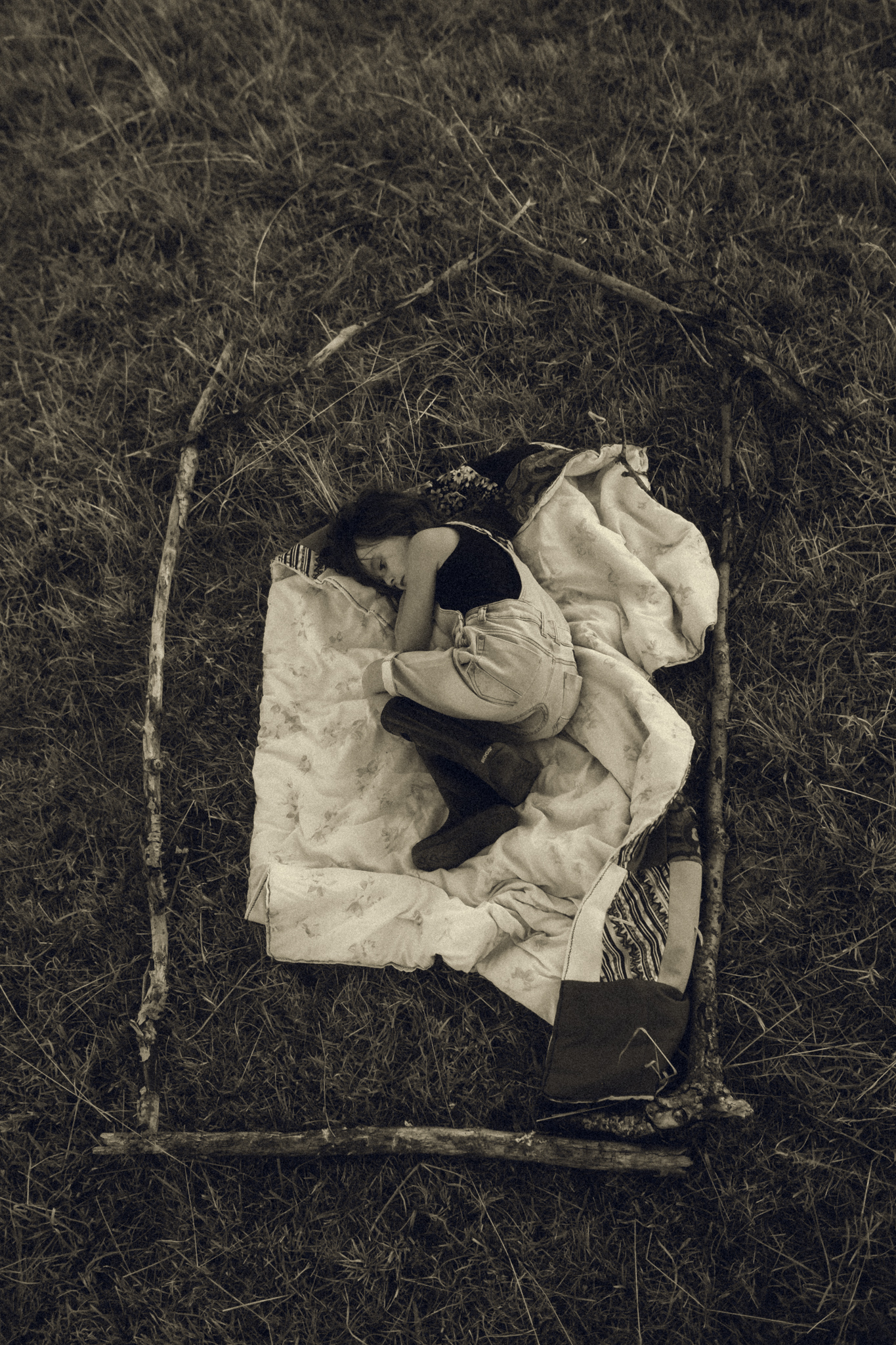
Then I met my husband and we moved into his family home, and finally, I have that stability I always longed for. Only now I can’t shake the feeling that I am once again looking for a home somewhere I don’t belong. I’ve lived here for 4 and a half years now and each time I pull up this driveway I marvel that I live here. I’m grateful that my children grow will up with my husband’s stable roots, but I would be lying if I said that I didn’t long for somewhere that feels like me – a place where I felt rooted. Sometimes I can still feel that urge to squirm. What does it feel like to know you belong somewhere? Sometimes I think I am more fog than human; like I’m meant to weave between trees and settle for a time, moving on when the conditions become unfavorable for me to stay. And what do I do with this pulse within me that says “run”? You can’t run from what’s inside of you.
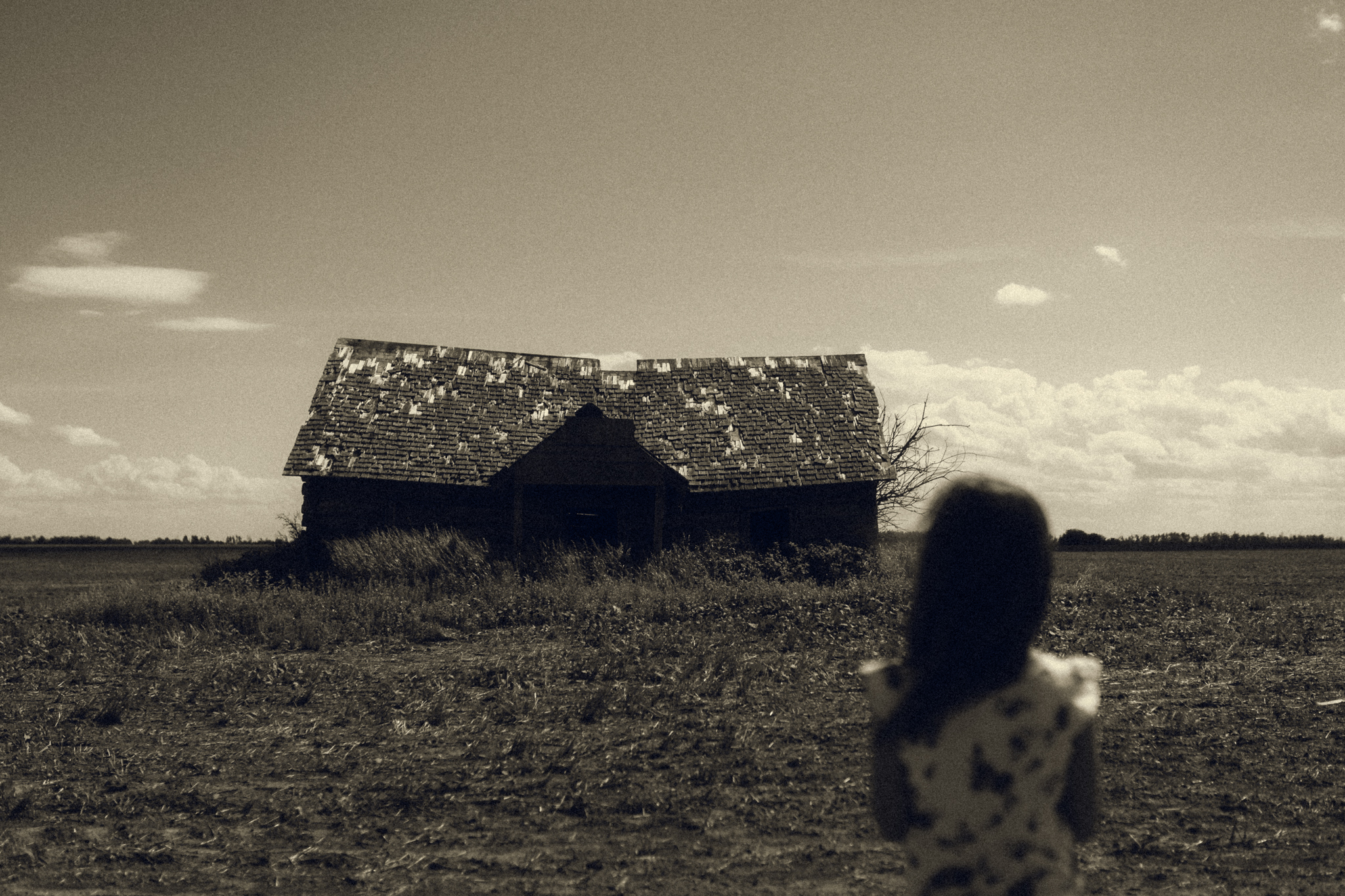
So I never thought the day would come when I would say that I miss it. I don’t miss the half-built houses or the lack of basic necessities, but I miss the quiet and the low hum of the Earth. I miss the wild rush of the wind over tall grass and the storms that were so loud and close they felt inside you. I miss that free feeling you get when you pack up everything and move someplace new; like anything is possible, like you get another fresh start, like you can put distance between you and your past and if you go far enough, it will disappear completely. I miss the dirt roads and blowing out candles at night. I miss the untamed land I wandered, not knowing it was who I needed most.
I remember how much shame I felt back then. How embarrassed I was about how we lived. There is a level of deviance associated with poverty that is hard to shake off. Uneducated, uncultured, and unwealthy, the world looks at you as if you are either stupid or lazy. Neither are true, but society will forgive you a lack of education and culture if you have money. I still struggle with a certain amount of rage if I let myself sit in these thoughts for too long, a sign that I have some unfinished business here. I can feel it rising in me now. It’s why I fought so hard to leave, why I worked so hard to put myself through university, so I wouldn’t be reminded of the pain and dishonor of having nothing and the anger that burns in response to the narrative that it was our own fault.
Yet I also want to cry over how ignorant I was then, how ungrateful. I want to apologize to the earth for not appreciating more the canned food that kept us alive during those cold northern winters, when the roads were passable only on horseback. Sometimes I want to crawl back into the tall grass and make my nest there, like the wild forest animal that I’ve always been; the one I caged and tamed in order to seem normal. Human standards are much different than Nature’s. By Nature’s standards, I grew up quite wealthy. I had fresh vegetables to eat every summer, and wild land to roam in. We didn’t own the land but we were permitted to be a part of it. We didn’t have running water but I knew how to melt snow in the winter for bathing and I drank from fresh streams in the summer. Our homes were often small and incredibly humble, but I intimately know the calm that rushes over you when you step barefoot into dirt, and the sound the land makes at sunrise.
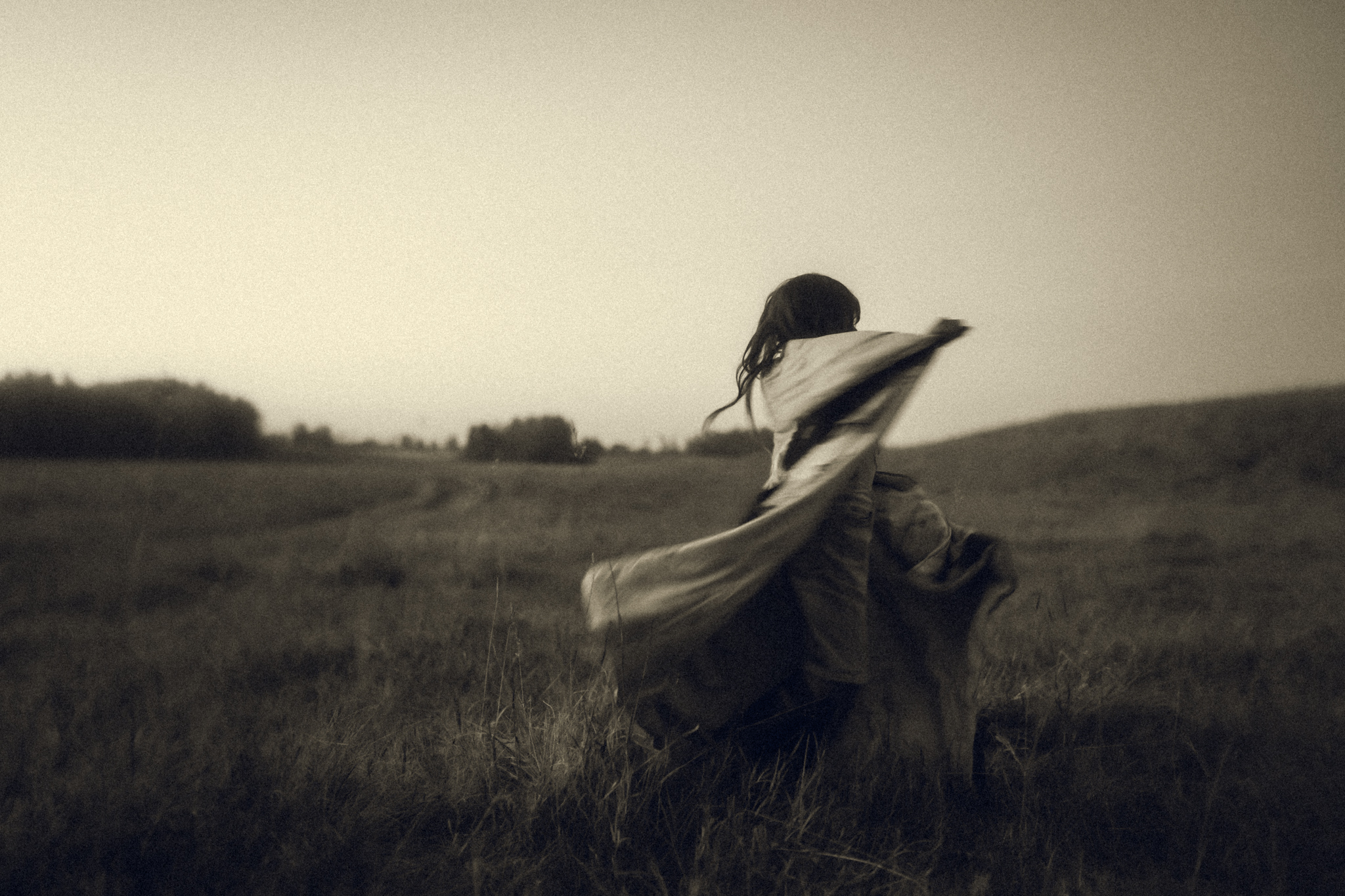
How do I teach my children to appreciate what they’ve never had to live without? That’s a question I ask myself daily. I know it’s possible, but I’m still learning. How do I instill in them a lasting and fierce love for wild things when they are surrounded by tame dirt that’s been beaten into submission by proud hands that don’t care to understand it? How do I even begin to whisper that I’ve cried for cropland because it’s lost it’s wild? My heart hurts for dirt that only gets to grow one thing a year. People would think that I’m crazy; that I’ve completely lost my wits. Except this isn’t new. I’ve always been this way. That’s what happens when the wild gets inside of you, you can’t unsee what it shows you.
I often feel unsuited. I’m unsuited to living in the modern world as it is, yet I remain quite unsuited to living in the wild. I want a nice house and I like plumbing and electricity, yet something is desperately missing in our modern idea of society and that knowing haunts me.
Sometimes I don’t pick the weeds in my yard just so I can see the wild come closer to me. Fun fact, most of the “invasive” plants we have are due to human tampering with the land. They are a direct response to our activity, an attempt to bring itself back into balance, an immune response to a deadly disease. Walking the perimeter of our property gives me mixed feelings of incredible joy and aching sadness. Joy for the privilege to live here and raise my babies on such a beautiful property, and sadness for the lack of wild around me, the loss of wild in the land. I think maybe everyone would feel this way if they let themselves; this wonder and horror combined. But we’ve been taught to protect and defend the sterile cage civilization has put us in. Yes, the wild is dangerous, but not as dangerous or destructive as we are. We are losing connection to ourselves because we have disconnected from feeling anything for the natural world. We no longer listen to the spirits of trees or commune with animals and plants. We no longer revere gods that elevated the natural world as reflections of the divine.
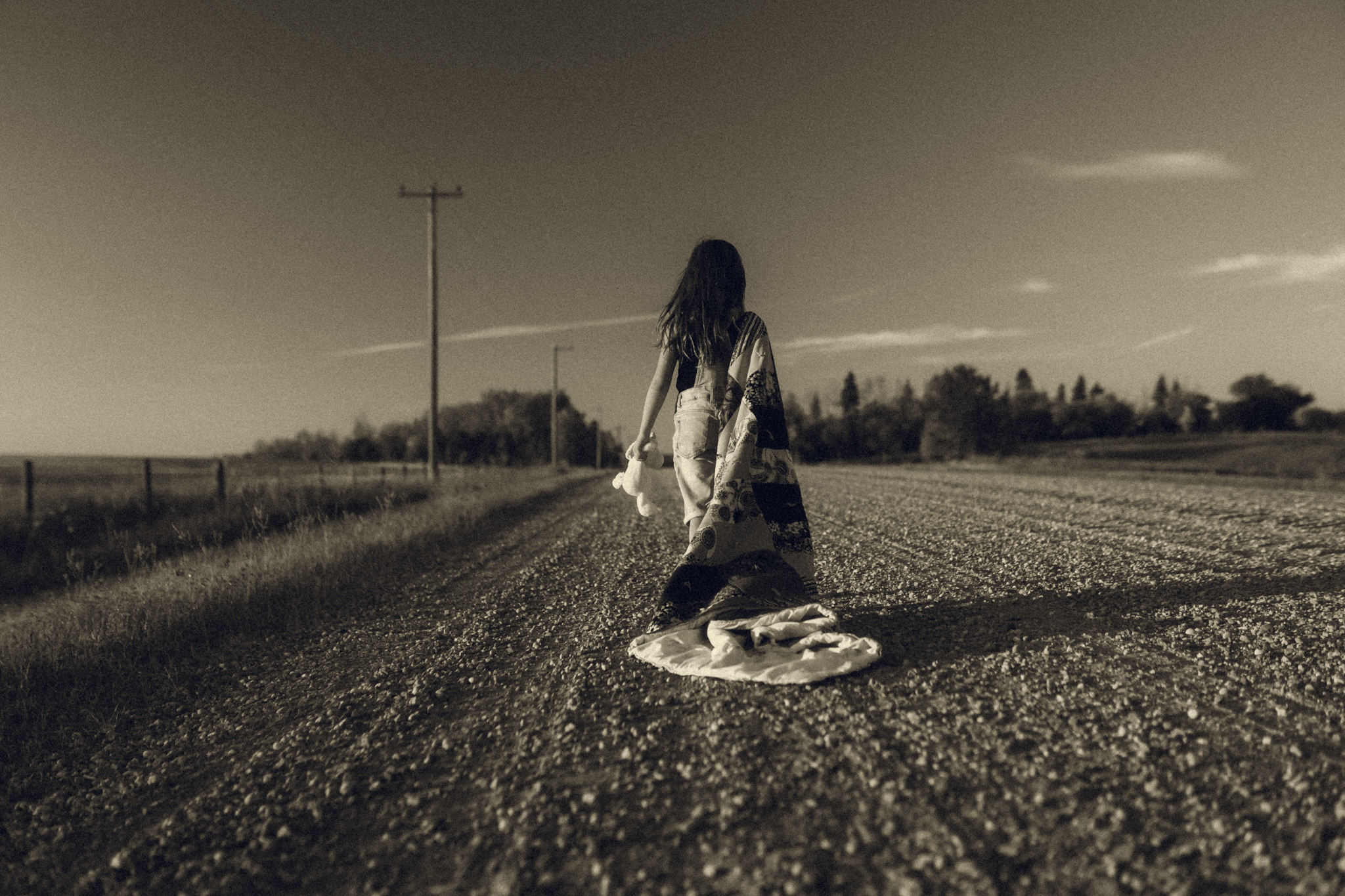
The truth is I’m tired of worrying all the time that I’m too weird, that I’m offending someone right now who is reading this, that I’m not being objective enough, that I’m too soft or that I won’t see the whole beginning to end, and that I’ll be like everyone else, clueless and blind in a world that often makes no sense. But we are all clueless and we are all blind, and what I do see no one else around me seems to want to see. We want to go on pretending like humans are the center of everything and that ours are the only lives that matter. But that mushroom you just picked off your lawn has more history, wisdom, and resilience in one spore than you have in your whole body. Why don’t you think that matters?
I bet the wild weeps for us; the stupid self-absorbed creatures that severed themselves from the earth that bore them. And why? Because we are afraid of death? I think maybe death is just part of giving back; decay is the food that feeds new life. Jeffrey Cranor wrote that “Death is only the end if you assume the story is about you,” and we’ve been telling stories that make humans the center of everything for as far back as history has memory.
I’m not without my trauma and my doubts. Fuck, obviously. They shape me now just as much as the breath that has been lent to me, however humble. But my upbringing is hardly the worst thing that can happen to you and living so close to the Earth gives you eyes to see through the illusion of civilization and its self-proclaimed sovereignty over Nature. We are out of alignment with the natural order of things and we have lost our songs of gratitude. I miss those places in the woods; with the quiet and the trees and the dew and the dirt, where there was no magic mirror in our pockets to drown out the songs of the Earth. I miss playing in the mud, with the rainwater and the beetles, too young to be aware of what we lacked, and I think maybe I was content then, before I knew I was poor, all those years ago with the dirt in my heart and on my skin.
And maybe one day, when I figure out how to sit in the muck of all these contradictions and accept that many things can be true at once without trying so hard to make sense of it, I’ll be content once again.
